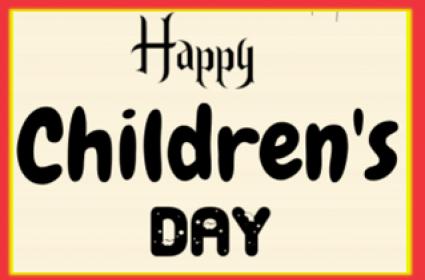Childrens Day 2020: Rights Of Children During COVID Times

Children's Day this year is right around the corner, and this time this special day also falls on the same say as Diwali this 2020. With many states banning the use and sale of firecrackers due to the rise in pollution levels might prove to be dampener for children who are eagerly looking forward to celebrate with firecrackers. It may be disappointing for the kids but this decision had to be taken keeping in mind the health of the people and children.
As per a recent UNICEF report 220 million children in South Asia region including India, among nearly 300 million globally, currently live in areas where outdoor air pollution exceeds international guidelines by at least six times.
The study -- Clear the Air for Children -- based on satellite imagery, in the first analysis of its kind, has categorised the affected areas based on the quantum of particulate matter, ranging from 10 to 60 ?g/m3 (the amount of micrograms of ultra-fine particulate matter per cubic metre of air that constitutes a long term hazard). "Around 300 million children currently live in areas where the air is toxic exceeding international limits by at least six times. In total, around 2 billion children live in areas that exceed the World Health Organisation annual limit of 10 ?g/m3," the report says
Of the 300 million global figure for PM 2.5 annual mean exceeding 60 ?g/m3, 220 million children belong to South Asia region, which includes India and neighbouring countries."The sheer numbers of children affected are staggering,'' the report says.
Many of these children are already disadvantaged by poverty and deprivation. Every year, nearly 600,000 children under the age of five die from diseases caused or exacerbated by the effects of indoor and outdoor air pollution, the report said.
According to a recent WHO report, Delhi was ranked among the top 20 cities worst-affected by pollution globally. "More than 60 per cent of the population in India continue to use solid fuels in household cooking, contributing to over 100,000 child deaths associated with indoor air pollution in 2012," the reports says.
This brings us to the topic of Children's rights during the COVID -19 pandemic times. The rights of children as per the Constitution of India are envisaged as follows:
1. THE RIGHT TO AN IDENTITY (ARTICLES 7 AND 8)
Children are entitled to a name, legally registered with the government, and a nationality (to belong to a country). Further, they must have the right to an identity, in the form of a public record. This ensures national support, as well as access to social services.
2. THE RIGHT TO HEALTH (ARTICLES 23 AND 24)
Medical care, nutrition, protection from harmful habits (including drugs) and safe working environments are covered under the right to health, and articles 23 and 24 enumerate access to special care and support for children with special needs, as well as quality health care (including drinking water, nutrition, and a safe environment) respectively.
3. THE RIGHT TO EDUCATION, (ARTICLE 28)
Right to free primary education is critical for helping children develop discipline, life skills while finding a safe and healthy environment to nurture a child's physiological development. This includes freedom from violence, abuse or neglect.
4. THE RIGHT TO A FAMILY LIFE (ARTICLES 8, 9, 10, 16, 20, 22 AND 40)
If not family members, then children have the right to be looked after by caretakers. Children must live with their parents until it is harmful to them. However, 'family reunification', i.e. permission for family members living in different countries to travel to renew contact between family members is critical. Under the ward of a caretaker or family, they must be provided privacy against attacks on their way of life and personal history.
Children who do not have access to a family life, have a right to special care and must be looked after properly, by people who respect their ethnic group, religion, culture and language. Refugee children have a right to special protection and help. In the case of misdemeanours, children have the right to seek legal counsel under a juvenile justice mechanism, with the fair and speedy resolution of proceedings.
5. THE RIGHT TO BE PROTECTED FROM VIOLENCE (ARTICLE 19 AND 34)
Protection from violence extends even to family members, and children must not suffer ill-treatment or sexual or physical violence. This includes use of violence as a means of discipline. All forms of sexual exploitation and abuse are unacceptable, and this Article takes into view the sale of children, child prostitution and child pornography.
6. THE RIGHT TO AN OPINION (ARTICLE 12 AND 13)
All children deserve the right to voice their opinions, free of criticism or contempt. In situations where adults are actively deciding upon choices on behalf of children, the latter are entitled to have their opinions taken into consideration. While children's opinion may not be based on facts, it is nonetheless an important source of insight for parents, and should be considered. However, this depends on the child's level of maturity and age. Children have the freedom of expression, as long as they are not harming others with their opinions and knowledge.
7. THE RIGHT TO BE PROTECTED FROM ARMED CONFLICT (ARTICLES 38 AND 39)
Armed conflict converts innocent children into refugees, prisoner, or participants in armed conflicts, and these are all circumstances which contravene with the spirit of War or any armed struggle can severely damage a child's morale as well as perceptions of ethics, and this must be corrected in a nurturing safe environment. While seeking to rehabilitate children affected by war, the government must also ensure that children are not forced to participate in any armed struggle.
8. THE RIGHT TO BE PROTECTED FROM EXPLOITATION (ARTICLES 19, 32, 34, 36 AND 39)
As exploitation is usually achieved through violent means, protection from violence is critical for freeing children from exploitation. This extends to abuse, negligence and violence by parents, even if it is justified as an instrument of achieving discipline at home. Further, children cannot be made to work in difficult or dangerous conditions. Children can only volunteer to work doing safe chores that do not compromise their health, or access to education or play. Sexual exploitation, another dimension of exploitation, is also prohibited, as an activity that takes advantage of them. Survivors of neglect, abuse and exploitation must receive special help to enable recovery and reintegration into society. Children also cannot be punished cruelly, even if it is under the ambit of the justice system. Death or life sentences, as well as sentences with adult prisoners, are not permitted.



















